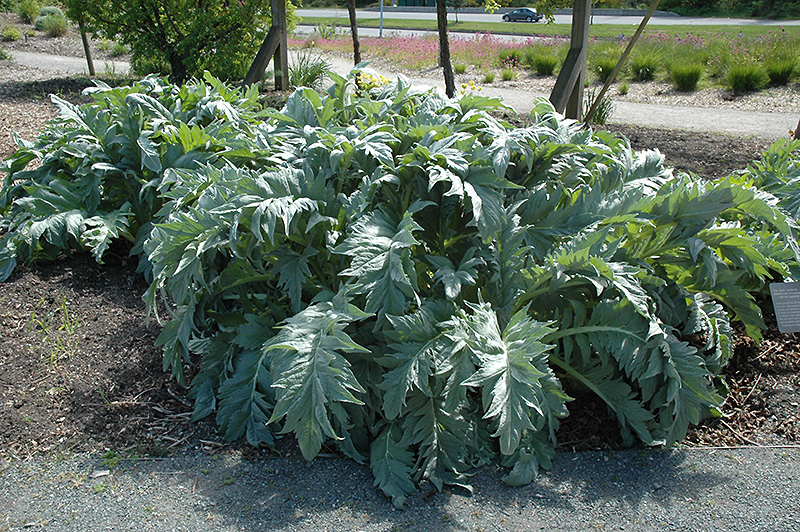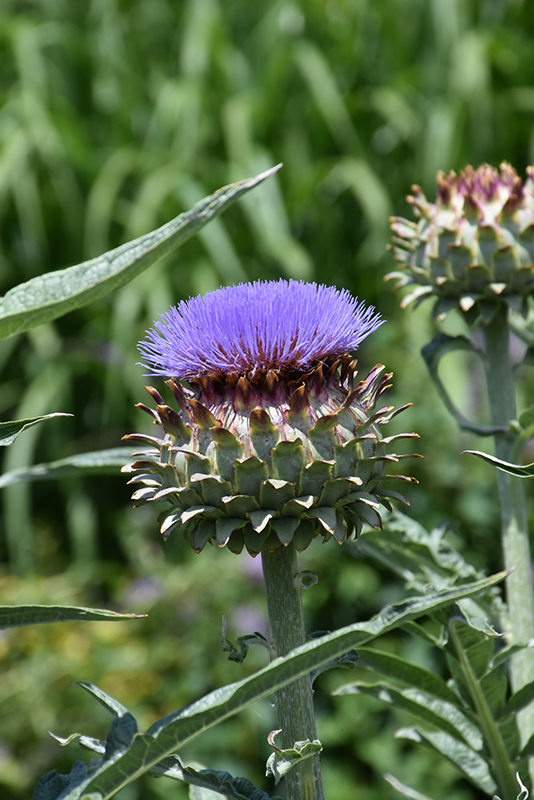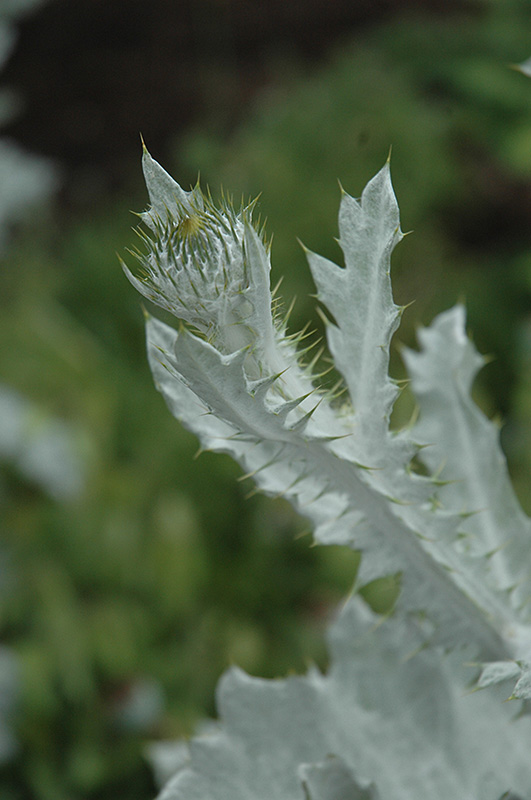Plant Search
Height: 6 feet
Spread: 4 feet
Sunlight:
![]()
Hardiness Zone: 7a
Other Names: Artichoke Thistle
Description:
Splendid arching silvery, spiny foliage is an architectural delight in the garden; careful when handling the spiny foliage; bold thistle-like flowers can be eaten like artichokes when unopened; leaf stalks edible if blanched.
Edible Qualities
Cardoon is a perennial herb that is typically grown for its edible qualities. It produces which are harvested from late spring to mid summer. The have a pleasant taste.
The are most often used in the following ways:
- Cooking
Features & Attributes
Cardoon features showy purple pincushion flowers rising above the foliage from late spring to early summer. Its attractive spiny ferny leaves remain grayish green in color throughout the season.
This is an herbaceous perennial herb with an upright spreading habit of growth. Its relatively fine texture sets it apart from other garden plants with less refined foliage. This is a high maintenance plant that will require regular care and upkeep, and should be cut back in late fall in preparation for winter. It is a good choice for attracting bees and butterflies to your yard. Gardeners should be aware of the following characteristic(s) that may warrant special consideration;
- Spiny
- Self-Seeding
Aside from its primary use as an edible, Cardoon is sutiable for the following landscape applications;
- Accent
- Border Edging
- General Garden Use
- Herb Gardens
Planting & Growing
Cardoon will grow to be about 5 feet tall at maturity, with a spread of 4 feet. It grows at a medium rate, and under ideal conditions can be expected to live for approximately 10 years. As an herbaceous perennial, this plant will usually die back to the crown each winter, and will regrow from the base each spring. Be careful not to disturb the crown in late winter when it may not be readily seen!
This plant is typically grown in a designated herb garden. It should only be grown in full sunlight. It does best in average to evenly moist conditions, but will not tolerate standing water. It is not particular as to soil type or pH. It is highly tolerant of urban pollution and will even thrive in inner city environments, and will benefit from being planted in a relatively sheltered location. This species is not originally from North America.
A NetPS Plant Finder tool




